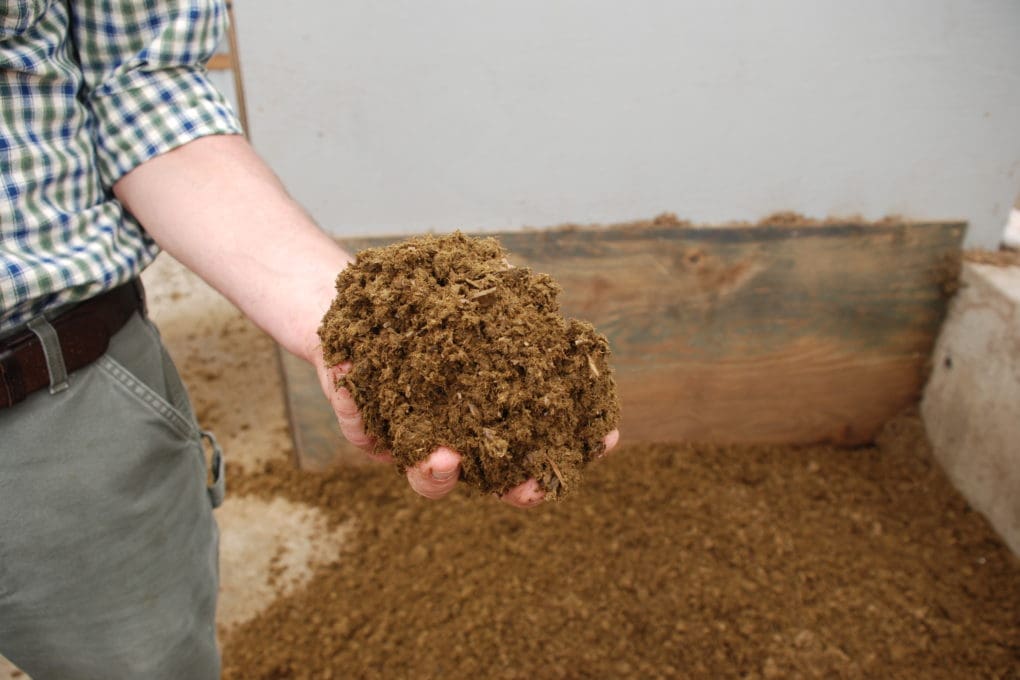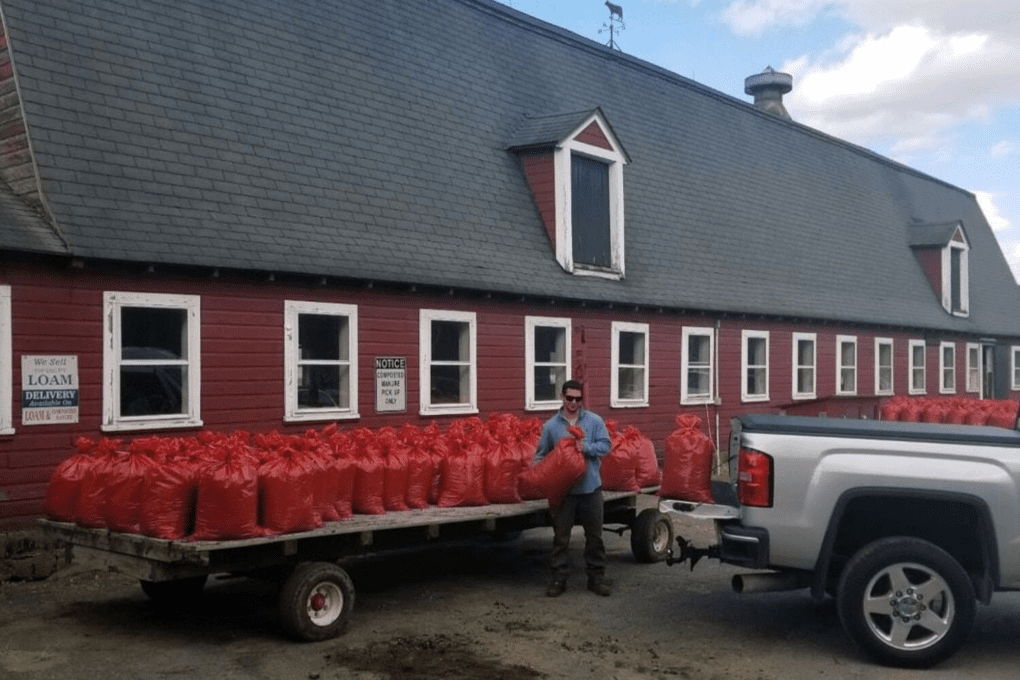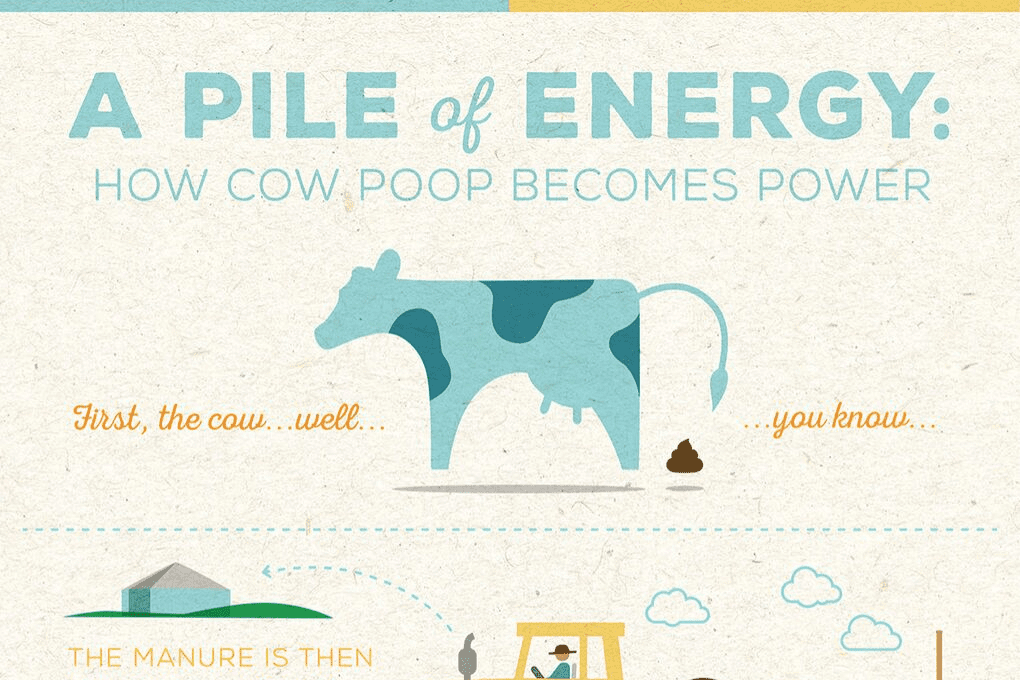Rich in nutrients, cow manure fertilizes the land to grow crops for people and animals. Manure carries important nutrients that plants need like phosphorous and nitrogen. Cows depend on healthy crops to produce nutritious milk. In turn, those fields are nourished by the manure cows produce which is used as natural fertilizer. The crops are harvested to feed the cows, cow manure is created, and the cycle continues.
One cow produces can produce up to 100 pounds of manure each day. On New England dairy farms, manure is a valuable resource to be reused instead of wasted, and it also reduces the need to use synthetic chemical fertilizers.
Some dairy farms across New England use anaerobic digesters (sometimes referred to as a methane digester system) which can turn cow manure into renewable energy to power the farm and surrounding homes. The digested manure on some farms is processed through a mechanical separator where they can use odorless solids (a by-product of this process) as clean, soft bedding for their cows rather than purchasing bedding from outside sources. Many dairy farms also accept leftover food and food scraps that people and animals cannot eat and recycle them through anaerobic digesters and composting.



